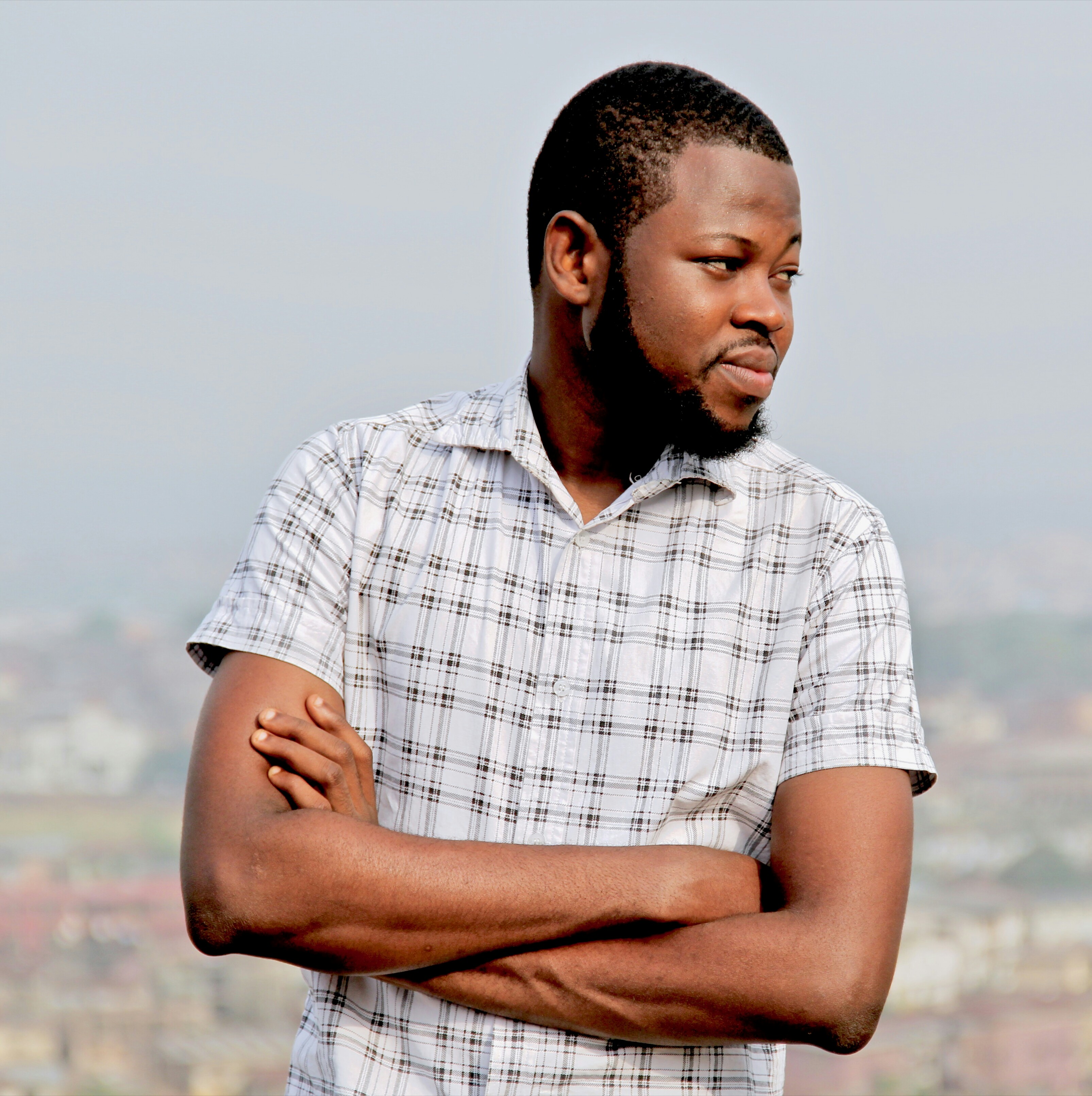 Brief Biography:
Brief Biography:
Rasaq Malik is a graduate of the University of Ibadan, Nigeria. His work has appeared or is forthcoming in various journals, including Michigan Quaterly Review, Poet Lore, Spillway, Rattle, Juked, Connotation Press, Heart Online Journal, Grey sparrow, Jalada, and elsewhere. He is a two-time nominee for Best of the Net Nominations. His poem was among the finalists for the 2015 Best of the Net Nominations. Recently, Rattle Magazine and Poet Lore nominated his poems for the 2017 Pushcart Prize.
Geosi Gyasi: You’re a graduate of the University of Ibadan, Nigeria. What did you study at school and how relevant is it to you as a poet?
Rasaq Malik: I studied English Literature at the University of Ibadan. I spent my undergraduate years reading literary texts recommended in the class and the ones outside the four walls of the classroom. However, my poetic peregrination started at Blue Crescent International College, Iseyin. My literature teacher, Aunty Lizzy would read Kofi Awoonor’s poems to us and other poems that, till now, breathe in my heart and reoccur to me whenever I engage the transient nature of the world, the lost ritual of kindness and humanness as regards our daily activities as pilgrims on the road of life. I wrote my first poem for the late lawyer and activist, Gani Fawehinmi, when I was in SSS II. I would also say that University of Ibadan provided a platform for me to grow in my own way. After reading Nigerian poets like Niyi Osundare, Remi Raji, Olu Oguibe, Jumoke Verissimo, etc, I realized, repeatedly, the urgent need to pursue writing as a form of jihad, as a tool to deploy for the liberation of the people, as a map to trace to reach the promised land. So, the chain of my poetic sojourn started in school – secondary school – and stayed with me till I graduated. Today I still write and find solace in the literary aesthetics and how poetry informs and reforms, innovates and renovates, incites and instigates, resides and inhabits, propagates and stirs the world to embrace love and peace.
Geosi Gyasi: Your poetry speaks to the reality of the issues bedeviling a country with a painful past and present: of wars, bomb blasts, lost relatives, and many other horrors. How does it really feel like living in such a country?
Rasaq Malik: It is not palatable to wake up to the news of bomb blasts somewhere in Kano and Maiduguri. Even when I deafen my ears to the news and live without burdening my life with someone else’s tragedy, I realize that it is pertinent for me to document the social realities and the diverse quagmires cum casualties that wean us, that victimize our collective passion for peace and safety in the times of danger. I know that living in Nigeria is like walking a dark path, treading a thorny path, watching your children leave home to return as bodies folded like a prayer mat. I realize that it is the same everywhere, but there is this reality of death that haunts me. In other countries – especially the third world countries –there is a tendency for tragedy to emerge anytime. People are weary of living under an oppressive government, paying taxes that end in politicians’ pockets, dying in prisons as innocent victims of an unjust society. In Nigeria, it is the same case. People leave their houses at dawn; people return to meet wrecks and bodies piled on bodies at twilight. Some of these unrecorded casualties inform my poems. In addition, I would like to reecho what Yousef Koumayaka said when interviewed by Tod Marshall about race and war. Responding to the question about the acceptance of the responsibility of poets to speak against violence during times of war, he replies: “I feel that the artist or poet – more than the politician or professional soldier – is condemned to connect to what he or she observes and experiences.” Reacting to this insightful and thought-provoking response, I agree with Koumayaka that we are bound to view the world through the lens of our writings. We should act the role of an observer and a literary tourist, a historian and a storyteller. It would go a long way in creating an important awareness in a world riddled with trivial events.
Geosi Gyasi: “Home is no longer the peace
we crave as we wake up every day to hear gunshots
in the air, to see ambulances racing to the scenes
of bomb blasts, police cars swarming the streets
like insects lured by the magic of light.”
(From the poem, “We Don’t Know Where We Belong”)
From the above lines, do you ever feel proud referring to Nigeria as home?
Rasaq Malik: I love Nigeria as a country. To me, referring to it as a home is another level of semantic interpretation. It takes a courageous heart to say this country is a home. However, writing transports my heart to another realm. Writing, to me, is a decisive means of creating a beautiful landscape out of a country wallowing in a sea of war. As a Nigerian poet living in Nigeria, I remain unshaken to the cause of working for the growth of my country. It is still a home inhabited by people who succumb to the heart-wrenching sound of bomb blasts. This question reminds me of Olu Oguibe’s “I am bound to this land by blood.” He writes:
“I am bound to this land by blood
That’s why my vision is blurred
I am rooted in its soil
And its streams flood my veins
I smell the sweat of its men
And the million feet that plod
The dust of its streets
Leave their prints on my soul.”
In this poem, Olu Oguibe’s admits to the fact that he is bound to this land (Nigeria) by blood. This is synonymous to saying that in spite of the enormous problems surfacing every day, his land remains paramount and dear to him. Growing up in Nigeria has exposed me to many things. Also, being among the proletariats is another angle to address it. Every day we hear on the radio how politicians embezzle money and fly abroad to build gigantic houses for their unborn children. Every day we find it unworthy to develop a passion for a country that reeks of corruption and favoritism on the part of the government while the masses toil and clamour for peace. So, like Olu Oguibe, I am bound to this land by blood. This land houses my umbilical cord. It bears my footprints and my sweat and the sweat of my grandfather.
I know that living in Nigeria is like walking a dark path, treading a thorny path, watching your children leave home to return as bodies folded like a prayer mat. I realize that it is the same everywhere, but there is this reality of death that haunts me.
Geosi Gyasi: My best pick of your three poems shown on the Brunel International African Poetry Prize website is “Being a Mother In The North”. How did you come about this poem?
Rasaq Malik: The poem was among the poems I wrote when exploring the aftermath of the incessant bomb blasts that occurred in the Northern part of Nigeria on the lives of people living in places like Kano, Maiduguri, Kaduna, Borno, etc. In Nigeria, there is a thin difference between someone who has experienced, say, the killing of his father or the kidnapping of his sister and someone who hears the news about people bombed when observing Subhi prayer in Maiduguri. To me, the writing of poems to depict war is an inevitable task in a country like Nigeria. To me, the victims of these needless bombings could be anybody. The victims could be my brother, my sister, my uncles, my parents. I think this is what harmonizes us in this country. This is what unites us as a country populated by poverty-ridden people and witnesses of varying degrees of unrest. J.P Clark’s “The Casualties,” resurfaces at this stage. I think the poem portrays it better. In spite of geographical gaps and tribal differences, we are all sufferers and casualties in this present war. We are all trying to find comfort by switching on our radios, our ears hoping to hear good news amidst the deluge of bad news engulfing our hearts.
Geosi Gyasi: To date, which of your poems would you consider as your best or most important?
Rasaq Malik: I write every day. I do not really know the poem that grips my heart to the extent of crowning it my best poem. I would like to say it is quite difficult to select the best. Every poem has its own soul and spirit.
Geosi Gyasi: Of all the shortlisted poets, whom do you think deserves to win this year’s Brunel International African Poetry Prize?
Rasaq Malik: I believe every poem is important. Every poem has something to say; something striking and piercing, something shocking and excruciating, something engaging and electrifying, something awe-inspiring and something taken by the reader as what speaks to him/her or what paints his/her thoughts or desires. Brunel, through poetry, has been able to define arts and plays an indelible role in propagating it. I have read the shortlisted poems and I am wowed by the dexterity deployed in the handling of language by the poets. The poems are beautiful and appealing. So, I would leave the judges to select the winner(s) and award the best entries.
Geosi Gyasi: You seem to have been published in some major magazines across the world. My question is when will your debut book come out?
Rasaq Malik: I believe in the art of honing my writing and revamping my poems. I once read about Thomas Hardy publishing his first poetry collection titled Wessex Poems when he was fifty-eight. Robin Coste Lewis, the author of Voyage of the Sable Venus (2015) and the winner of the National Book Award for Poetry did something similar. Jumoke Verissimo’s ‘I am memory’ spent years before she published it. I mean these poets did not hurry to publish. They worked on their manuscripts and did well in editing and erasing and agreeing and disagreeing before getting these manuscripts published. I am looking forward to publishing my manuscript when the time is ripe.
Geosi Gyasi: Is it difficult to end a poem than to begin?
Rasaq Malik: I find it difficult to begin a poem than to end it. I spend time trying to begin with lines that will captivate the attention of the reader. I think writing is like childbirth. It takes time, energy, and endurance. Another thing is that it takes a skillful hand to disentangle the web of diction and write a canonical poem. It is not easy.
In Nigeria, there is a thin difference between someone who has experienced, say, the killing of his father or the kidnapping of his sister and someone who hears the news about people bombed when observing Subhi prayer in Maiduguri. To me, the writing of poems to depict war is an inevitable task in a country like Nigeria.
Geosi Gyasi: What has been your greatest challenge as a poet living in Nigeria?
Rasaq Malik: The inability to explore the fertile literary landscapes of other countries has been a major bane to me. It is quite difficult to get those books here in the country. In the past, I used to message writers whose books I found interesting and engaging after reading, say, snippets and reviews of the books. I remember messaging Hayan Charara, Hala Alyan, Danusha Lameris, Tohib Adejumo, etc. These poets and literary enthusiasts have written poems that reflect humanity and aid the better understanding of the world we inhabit and the world that troubles our dreams and aspirations. They continue to inspire me and stir me to do better. I remember the accommodating and supportive Laura Kaminski and her world of kindness and hope. Over the years, Laura has been able to send books to some of the emerging Nigerian poets. She has been able to show us a world characterized by love and friendship. She has been able to spread love across borders, not minding the blurriness that exists between the physical world and the virtual world.
Geosi Gyasi: Do you have any dream to travel outside Nigeria, to pursue further studies in writing and/or to pursue your dream as a poet?
Rasaq Malik: I have a potent dream to study writing outside Nigeria. I think opting for MFA is the best available medium to learn other things about writing outside this country. So, I keep praying that everything works out well. I would love to learn more about writing. I would love to be a better poet.
Geosi Gyasi: What would you use the prize money for when you win this year’s Brunel International African Poetry Prize?
Rasaq Malik: I have many dreams, you know. However, I have always been praying for the gift of life. I once messaged a friend to remember me if I died before Ramadan, in 2015. Well, I survived. Being on the Brunel shortlist has become a major reminder that my society is indisputably paramount and necessary in my voyage in life. I have to continue the art of creating pictures of the happenings and events around us. If I win this year’s Brunel International African Poetry Prize, I intend to invest in the propagation of literacy and liberation of the minds by buying books and gifting people some of these books. In addition, I have never had the opportunity to help orphans the way I would have loved to do. There are friends doing this already. Vincent Adeoba Joytohumanity is an exemplary leader and humanist whose passion for empowering others has inspired me. Olufunmi Adebajo is another selfless individual whose humanitarian work has liberated some of the poverty-ridden people and orphans in the society. Jack Vince possesses the courage to update us on the on-going events in Maiduguri and other parts of the troubled North. He also contributes his own quota to the rehabilitation of the victims of bokoharams’ attacks in the North. Rashidat Bakare Ikeoluwa is another lady I just discovered online. She is the founder of “Empower Borno”, a platform she created to help the victims of Boko haram insurgency in Borno. She continues to wax stronger and I love her spirit of love and kindness. If I win, I intend to contribute to some of these selfless organizations and spare my country of the problems emanating from war and unrest.
END.



 Posted by Geosi
Posted by Geosi 
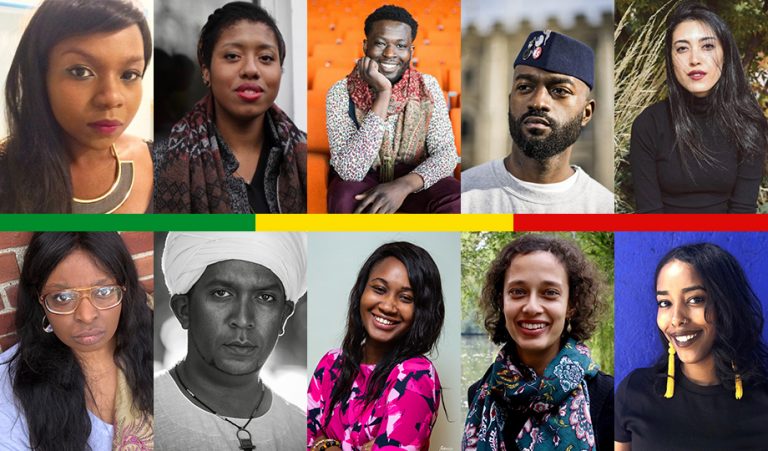
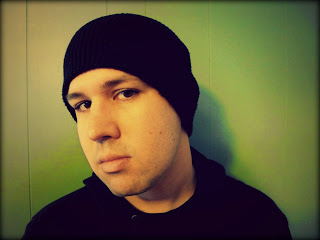 Brief Biography:
Brief Biography: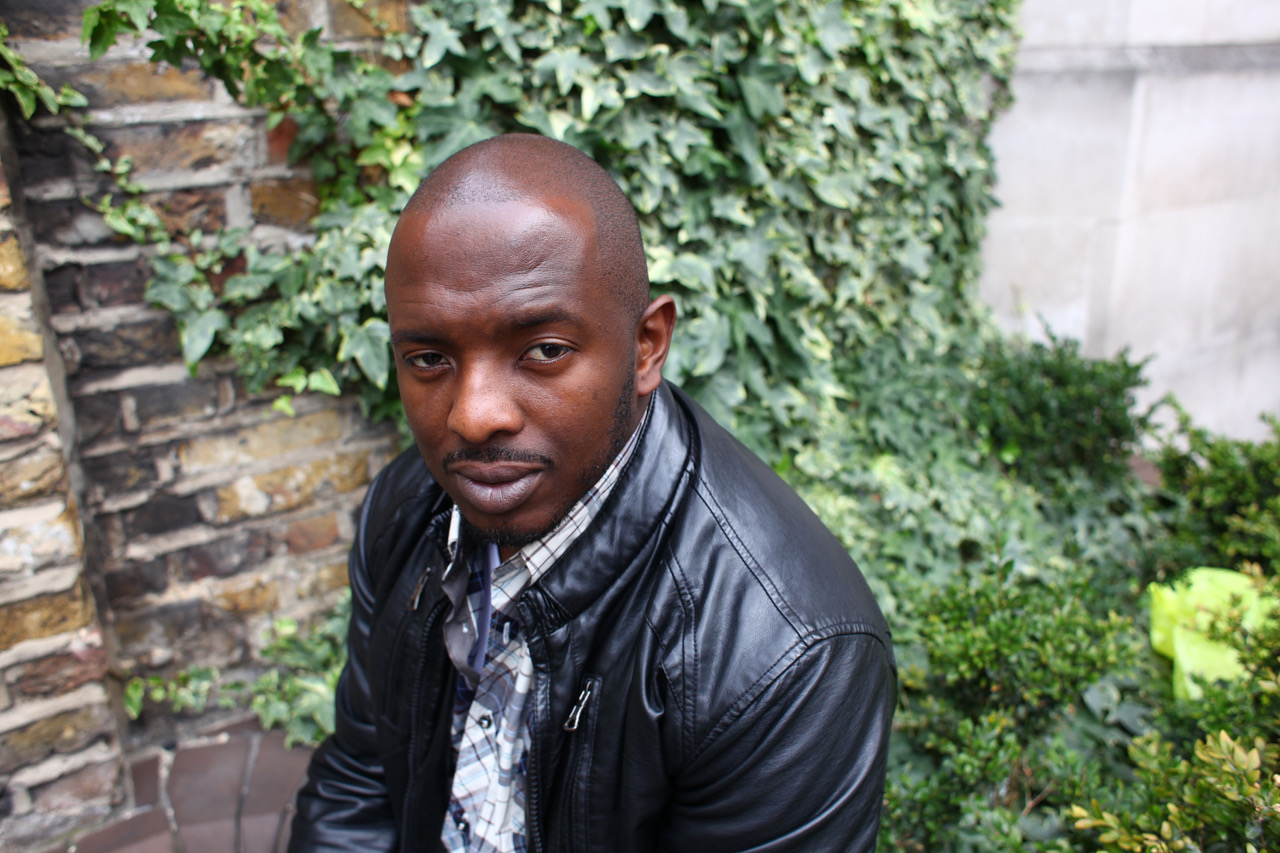 Brief Biography:
Brief Biography: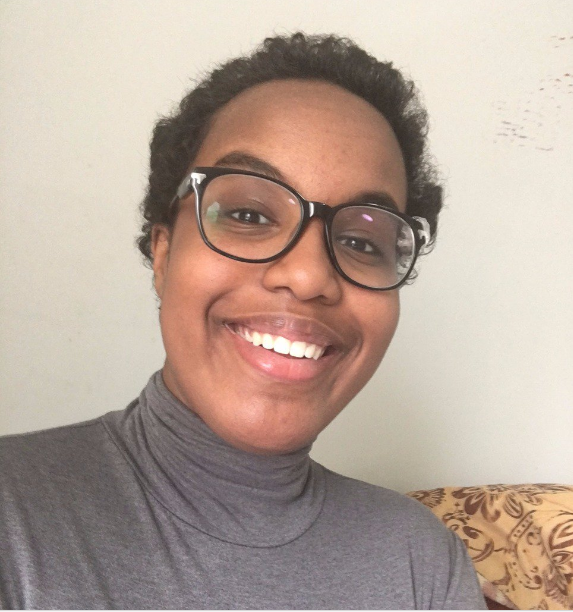 Brief Biography:
Brief Biography: Brief Biography:
Brief Biography: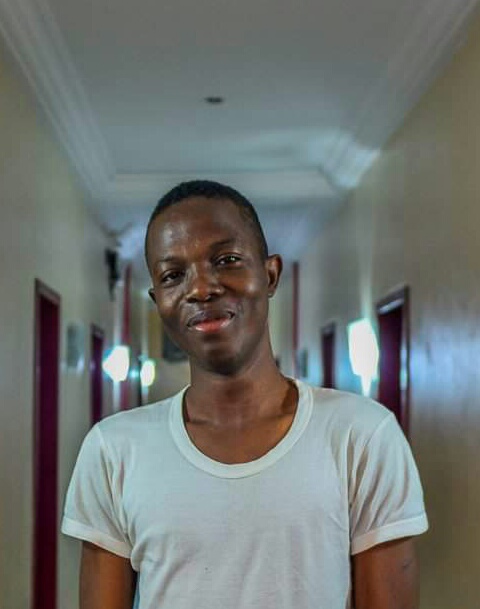 Brief Biography:
Brief Biography: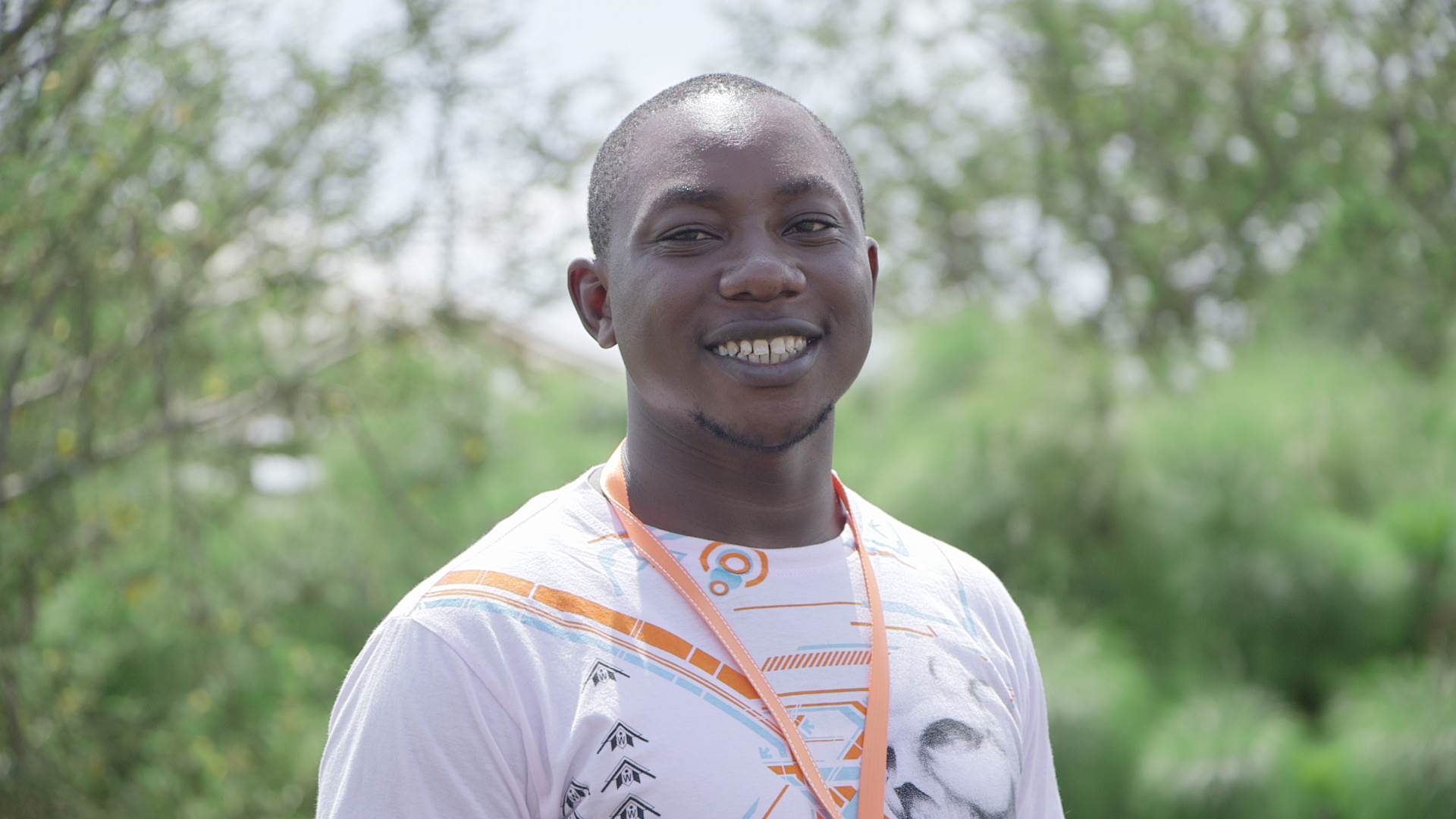 Brief Biography:
Brief Biography: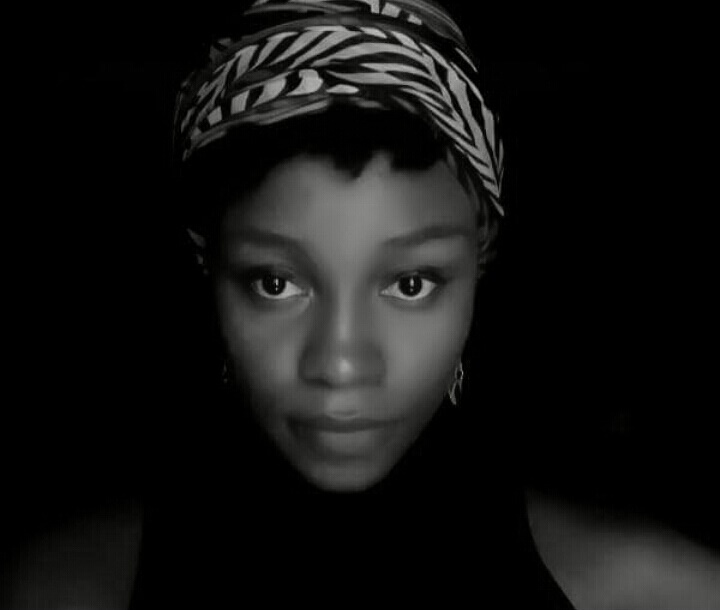 Brief Biography:
Brief Biography:

